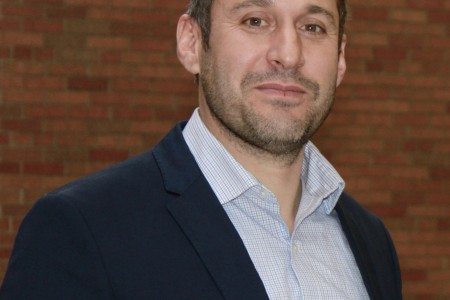
There are two new law deans on the scene.
 The University of Windsor’s new law dean Christopher Waters took the reins April 1 and the University of Manitoba’s Robson Hall appointed Jonathan Black-Branch April 13, with his term beginning July 1.
The University of Windsor’s new law dean Christopher Waters took the reins April 1 and the University of Manitoba’s Robson Hall appointed Jonathan Black-Branch April 13, with his term beginning July 1.
Waters, a member of Windsor’s faculty of law since 2007 and associate dean from 2009-12, has been acting dean since last September. Now that he’s been confirmed for a five-year term he can “really sink my teeth into some of the big items,” he says. He intends to “champion some of the things that make Windsor unique.”
First on his list: attending an Anishnabe Law Camp with the Walpole Island First Nation with a dozen faculty members.
The camp will be led by the First Nation’s elders and the agenda includes a historical overview of the land and learning from water and rocks, among other things.
“I can’t think of a better way to start my deanship,” he says. “It’s a pretty cool agenda.”
A priority for Waters during his deanship is “responding meaningfully” to the Truth and Reconciliation Report.
The report, which came out last year, made recommendations aimed specifically at law schools encouraging them to not only teach aboriginal law or Canadian law on aboriginal peoples, but also indigenous legal traditions.
“It’s important the faculty learn from the elders themselves about what the indigenous legal traditions of people in Southwestern Ontario are,” says Waters.
“We’ve hired two indigenous law professors who are starting with us in July. We hope that in addition to teaching about the common law and the civil law, we hope students will also understand that there’s a basket of legal indigenous traditions across the land.”
Moving from Canadian legal traditions to our neighbour to the south, Waters is also planning on taking “full advantage” of Windsor’s border location.
Windsor already offers an integrated dual-JD program with the University of Detroit Mercy but Waters says he would “like to expand as well, for example fully participate in a trans-boundary environmental law clinic with Wayne State University in Detroit.”
“There are lots of collaborations we can do with our partners and I think our border location gives a really unique opportunity to show international and transnational law in action.”
Another goal for Waters it to enhance experiential learning opportunities at the law school. He says he wants to look at other ways of doing experiential learning in and out of the classroom.
“I have to pitch it to faculty council but I’d like to see every student graduating from Windsor Law having had a meaningful experiential learning opportunity,” he explains, adding that the admissions process welcomes rounded students who have the ability to excel in the study of law but also contribute to their community.
“Next year or the year after we’ll be hiring a professor specifically to help lead us in that regard.”
From lofty aspirations, to more housekeeping aspects of the job, Waters says one of the challenges he’s inheriting is that the law school is outgrowing its current building. He will be looking at moving the faculty or a “significant renovations” involving a capital campaign.
Black-Branch, who was a teacher before beginning his academic law career, is currently a professor and chair in international law, as well as associate dean of education at Royal Holloway, University of London.
As well as holding multiple academic leadership roles, Black-Branch is also involved in the legal profession. From experience gained through chairing committees, launching roundtable forums, and co-editing journals and a peer-reviewed book series,
“I believe the faculty of law can look forward to a very promising future under his leadership,” said Joanne Keselman, provost and vice president, academic, at Robson Hall in a news release announcing Black-Branch’s appointment.